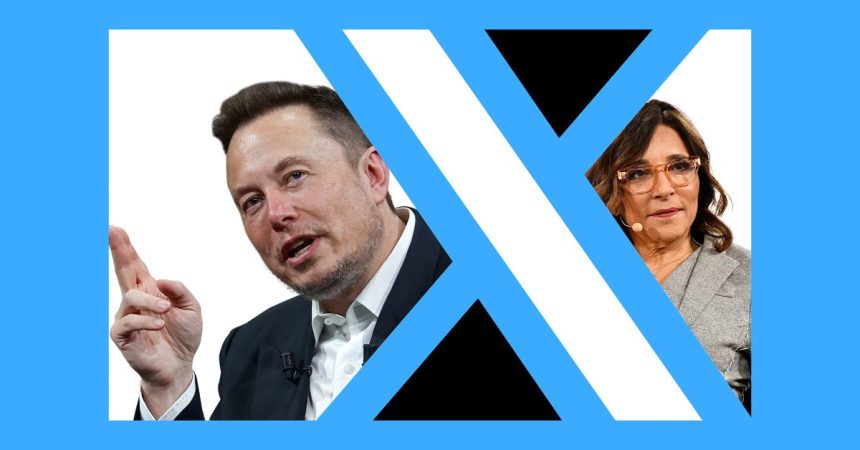The Kids Online Safety Act (KOSA), aimed at protecting children online, has encountered significant hurdles in its journey to becoming law. Despite passing the Senate with overwhelming support, the bill has stalled in the House, facing resistance from Republican leaders concerned about its potential impact on free speech and the broader internet landscape. X CEO Linda Yaccarino’s recent announcement of collaboration with KOSA’s authors signals a strategic move to alleviate these concerns and propel the bill forward before Congress adjourns. This intervention highlights the growing influence of Elon Musk and his companies on government policy, a phenomenon that, while not entirely unprecedented, raises questions about the role of private entities in shaping public legislation.
Yaccarino’s involvement, publicly acknowledged by the bill’s sponsors, Senators Richard Blumenthal and Marsha Blackburn, underscores the perceived significance of X’s contribution to KOSA’s chances of passage. The senators believe X’s input strengthens the bill while addressing concerns about censorship, thus neutralizing a key argument used by opponents. The collaboration focused on amending the bill to explicitly protect First Amendment rights and refine the scope of platforms’ duty of care, specifically regarding mental health issues. These revisions aim to reassure critics worried about potential overreach and the chilling effect on online expression.
KOSA’s core objective is to enhance online safety for children by holding tech platforms accountable for mitigating harms associated with certain design features, such as photo filters and infinite scroll. Critics, however, argue that the bill’s broad language could be exploited to suppress viewpoints or lead to excessive content restriction by platforms attempting to avoid legal repercussions. This concern over potential weaponization of the bill against disliked speech has become a central point of contention, contributing to the impasse in the House.
The revisions introduced with X’s input seek to address these concerns directly. By explicitly stating that the bill cannot be used to enforce the duty of care based on viewpoints protected by the First Amendment, the amendments aim to allay fears of censorship. Furthermore, narrowing the duty of care related to anxiety and depression to “objectively verifiable” conditions linked to “compulsive usage” provides greater clarity and limits the potential for overbroad interpretation. These changes are designed to strike a balance between protecting children and safeguarding free speech.
Despite these revisions, significant obstacles remain. House Speaker Mike Johnson, while acknowledging the laudable principle behind KOSA, has expressed reservations about its specific provisions and the potential for unintended consequences. House Majority Leader Steve Scalise is considered an even more formidable opponent, harboring concerns about the breadth of the duty of care imposed on platforms. Winning over these key Republican leaders is crucial for KOSA’s passage, making Yaccarino’s intervention a critical attempt to sway the balance.
The involvement of X in shaping KOSA’s trajectory underscores the complex interplay between private enterprise and public policy. While companies frequently engage with lawmakers on legislative matters, the public acknowledgement of X’s influence in this case highlights its perceived weight in the political process. This raises important questions about the appropriate level of corporate involvement in shaping legislation and the potential implications for democratic processes. As the clock ticks down on the current congressional session, the fate of KOSA hangs in the balance, with its success hinging on whether the revisions brokered by X can overcome the remaining resistance within the House.



